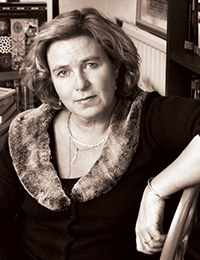 |
The question why open access has not yet become standard practice in spite of this can be easily answered. The traditional business model of the major academic publishers is based upon the exploitation of intellectual property. This model is far more profitable than the open access model, which presupposes a service-driven market. The established publishing industry has, until now, managed to successfully oppose any changes to this financial system. But developments like those in Britain, where publishing in open access was ruled mandatory by law in 2012, and the letter that state secretary Sander Dekker addressed to the House of Representatives of the Netherlands in November 2013, which detailed similar plans, have caused a paradigm shift even among publishers. The implementation of Plan S will definitely make publishers take a more positive view on open access, provided that their income is not affected (too) negatively by it.
The projects I work on with various academic institutions, funders of science and publishers are primarily aimed at making sure that the quality of academic publications is guaranteed, and avoiding that the costs of dissemination of research rise further in the transition process to Open Access publishing.
Background and Experience
Despite my particularly Dutch name, Saskia – like the first wife of Rembrandt - de Vries – the Friesian tribe from the north of the Netherlands, I have an international background. I was born in Washington DC and grew up in London, Warnsveld and Brussels.
My first real working experience was as a teacher of Dutch language and literature, but I soon joined HES Publishers in Utrecht as a jack of all trades. In 1985, I switched to Martinus Nijhoff Publishers (part of the Wolters Kluwer concern).
Director Amsterdam University Press
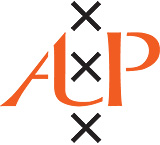 |
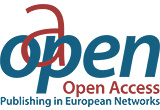 |
Director Leiden University Press
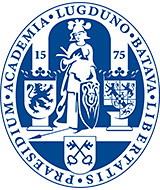 |
Sampan – academia & publishing
As business models in the academic publishing world are rapidly changing, and since there seems to be a vast need within academia to explore new ways of disseminating academic research results that are primarily funded with public money, I started my own business in 2012, Sampan – academia & publishing. I work on various projects with the Royal Netherlands Academy of Arts and Sciences, the National Library of the Netherlands, SURF- foundation, the Centre of Science and Technology (CWTS), Linguistics in Open Access, Mathematics in Open Access, Psychology in Open Access, OpenAire the Open Library of Humanities and the Fair Open Access Alliance.Projects
Fair Open Access Alliance – FOAA
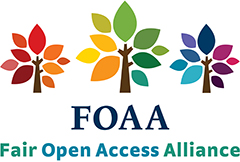 |
- LingOA (facilitating conversion to fair open access of journals in linguistics)
- MathOA (facilitating conversion to fair open access of journals in mathematics)
- PsyOA (facilitating conversion to fair open access of journals in psychology)
- Open Library of Humanities (dedicated to publishing open access scholarship with no author-facing article processing charges).
The Board of FOAA consists of Johan Rooryck, Peter Suber, Danny Kingsly, Ralf Schimmer, Jos Baeten and Martin Eve.
1. The journal has a transparent ownership structure, and is controlled by and responsive to the scholarly community.
2. Authors of articles in the journal retain copyright.
3. All articles are published open access and an explicit open access licence is used.
4. Submission and publication is not conditional in any way on the payment of a fee from the author or its employing institution, or on membership of an institution or society.
5. Any fees paid on behalf of the journal to publishers are low, transparent, and in proportion to the work carried out.
FOAA and Plan S
The Fair Open Access Alliance enthusiastically welcomed and endorsed the bold proposal of cOAlition S to accelerate the transition to Open Access in Europe during the OASPA conference September 2018 in Vienna.
FOAA also released extensive recommendations on the Implementation of Plan S, see this document.
The recommendations call for clarifying terminology, for support of no-fee Open Access initiatives, and for making any new infrastructure public and open. Perhaps the most important recommendation is to build cost transparency into the (capped) publication fee. Publishers should be required to provide the actual breakdown of costs contained in the publication fee, and make this information publicly available. A lack of transparency would establish the cap as a new price-point allowing publishers to renegotiate it every few years. It would also entice publishers whose actual costs are below the cap to raise their costs to meet the cap. Publishers will be reluctant to provide cost information, but it is essential for Plan S to work.
FOAA and the Transparant Transition to Open Access (TTOA) Consortium The FOAA cost transparency proposal has already been agreed to by a subset of publishers in the Transparent Transition to Open Access (TTOA) Consortium. FOAA asks for publishers to provide information about (1) indirect costs (a. journal support and submission system; b. Platform development and maintenance c. general management costs); (2) direct costs (a. editorial assistance; b. copy-editing c. promotion d. indexing and archiving (DOI, CLOCKSS etc)); and (3) profit.
Linguisitics in Open Access – LingOA
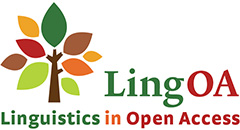 |
LingOA facilitates this radical move by paying for the Article Processing Charges (APCs) of the articles published in these journals during the first five years. Most journals are published by Ubiquity Press, with the Open Library of Humanities (OLH) as a long-term sustainability partner. OLH, whose platform is also provided by Ubiquity Press, will guarantee the continued publication of the journals associated with LingOA after the first five years through its consortial library funding model. OLH is a charitable organisation dedicated to publishing open access scholarship with no author-facing APCs (www.openlibhums.org). This will provide long-term sustainability for fair open access journals, ensuring that no researcher will ever have to pay for APCs out of their own pocket.
The open access publisher has to comply with the following conditions:
- The journal has a transparent ownership structure, and is controlled by and responsive to the scholarly community.
- Authors of articles in the journal retain copyright.
- All articles are published open access and an explicit open access licence is used.
- Submission and publication is not conditional in any way on the payment of a fee from the author or its employing institution, or on membership of an institution or society.
- Any fees paid on behalf of the journal to publishers are low, transparent, and in proportion to the work carried out.
LingOA went public on October 12th, 2015. There has been huge interest in it since then, especially after the complete editorial (6 editors) and advisory board (32 linguists) resigned from their journal Lingua at Elsevier. For more information see www.lingoa.eu.
Mathematics in Open Access – MathOA
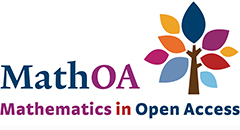 |
The editorial board of Journal of Algebraic Combinatorics has been assisted by MathOA in 2017 to leave Springer and set up under the name Algebraic Combinatorics with the publisher Mersenne in France.
Psychology in Open Access – PsyOA
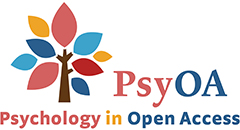 |
Open Library of Humanities (2016-2018)
 |
In May 2019, OLH has more than 230 libraries all paying a relatively modest amount into a central fund. This fund is used to cover internal staffing at the OLH and a cost-per-article to a set of vendors who provide our journal platform (currently Ubiquity Press). This works out at around 500 Euros per article or, at our current level of participation, 2.5 Euros per institution per article. As the European Library Partnerships Manager, I was in charge of expanding the library consortium in Europe. We are also working closely with LingOA in expanding the model of fair Open Access to other disciplines. For more information see www.openlibhums.org.
OpenAIRE (2015-2017)
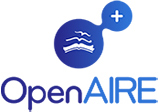 |
www.openaire.eu
Open Access Publishing Services (2012-2016)
 |
The conclusion of the research calls for a powerful interruption of the hegemony of the traditional publishers through the creation of (in part, alternative) professional publication options for academics in order to ensure a competitive publication environment.
Of particular importance is the achievement of the following goals:
- Distribution of the 'total' publishing operation (which is currently concentrated among the traditional publishers) among separate parties – for example, it should be possible for other parties than the publisher to arrange the technical aspects of publishing. In such a network of services and activities every party is compensated according to their contribution.
- Publishing functions such as the organization of peer review can be allocated to existing infrastructures like university libraries. In this way, a reduction in the costs of publishing can be accomplished.
- No exclusive transfer of copyright to publishers or journals.
- Although eventually no single entity will be 'owner of the whole' (akin to the situation in other networks or service chains), there will be a need for coordination at the national level.
Quality Open Access Market – QOAM
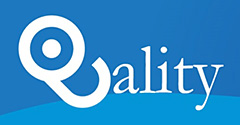 |
matched against price
Quality Open Access Market. QOAM is a market place for scientific and scholarly journals which publish articles in open access. Quality scoring of the journals in QOAM is based on academic crowd sourcing; price information includes institutional licensed pricing.
A worrying development in the open access market is the emergence of predatory journals. The publishers of such journals do collect compensation for a publication, but neglect to provide the corresponding quality control through peer review. The existence of these publishers has created the perception that open access publications are of lower quality. This perception is incorrect as there is an abundance of open access journals for which peer review is a chief focus. But there is certainly a need for an instrument to test the quality of a journal.
This instrument is QOAM, which can be accessed at www.qoam.eu. In QOAM, the quality of a journal is judged by the academic community by use of a Journal Score Card. Additionally, information is provided pertaining to the publication fees of the journal. In this way a market emerges.
Curriculum vitae
drs. Saskia Corine Johanna de Vries
Born 11th of April 1958, Washington DC in the USA
Dutch nationality
Education
- Grew up in the USA (1958-62), London (1962-65), Netherlands (65-71) and Brussels (71-76). International Baccalaureate at the European School in Brussels.
- Studied Dutch Language and Literature at the University of Utrecht (doctorate diploma in 1981) with minors in History and Art History
- Nima A marketing diploma (1986)
- Publishers Diploma at the Vakopleiding Uitgeverij (1985)
- Core Courses at Harvard University and internships at American university presses en libraries in the US during a sabbatical of half a year (1999)
- Fluent in Dutch and English – German and French reasonable
Work experience
- 1973-76: sailing instructor at Zeilschool de Vicking in Wolfsvaartsdijk (summer holidays)
- 1978-80: teacher of Dutch language 8 hours a week at the Social Academy for Foreigners in Rotterdam
- 1981-82: teacher of Dutch language and literature at the VWO/Gymnasium in Schiedam
- 1982-85: employee at HES-publishers in Utrecht (editorial/production/acquisition)
- 1985-92: employee at Stenfert Kroese/Martinus Nijhoff [Kluwer, later Wolters-Kluwer] as marketing manager (85-87) and publisher (87-92)
- 1992-2012: director and founder of Amsterdam University Press, the academic, international press of the University of Amsterdam. Currently circa 20 employees, circa 200 books and 8 (open access) journals a year.
- 2006: co-founder and advisor of the Leiden University Press, first as imprint of Amsterdam University Press, since 2009 as part of the Leiden University
- 2008-2011: coordinator of the EU project Open Access Publishing in European Networks (www.oapen.org). OAPEN aims to promote the quantity, visibility and usability of European research in an Open Access environment.
- 2011-October 2012: board member of the foundation OAPEN
- 2012-: director of Sampan – academia & publishing
As business models in the academic publishing world are rapidly changing, and since there seems to be a vast need within academia to explore new ways of disseminating academic research results that are primarily funded with public money, I started my own business in 2012, Sampan - academia & publishing.
Secondary activities
- Director/member of the Royal Dutch Society of Sciences in Haarlem (since 1997)
- Member of the Muiderkring (1998-2009)
- Member of the Social Advisory board of the department Humanities of the Netherlands Organisation for Scientific Research NWO (2002-2005)
- Member of the Academic Advisory board of the Research Institute for History and Culture (OGC) of the University of Utrecht (2003-October 2012)
- Member of the Society of Dutch Literature (since 2001)
- Member of the Board of Broadcasting Association the AVRO (2003-2005)
- Member of the Supervisory Board of the Natural Museum Naturalis in Leiden (2005-2010)
- Member of the board of the Foundation Library of the Book Trade (2006-September 2012)
- Co-founder and member of the board of SPUI25, academic cultural centre in Amsterdam (2008-October 2012)
- Member of the board of EIFL (Electronic Information For Libraries) (2010-2012)
Publications & Readings
- 'The Role of the Woman as Maecenas in the Creation of Medieval Dutch Literature' in Tijdschrift voor Vrouwenstudies, 1981.
- 'The Filming of De donkere kamer van Damocles: the Scenario by the Author of the Book, W.F. Hermans' in Literatuur: tijdschrift voor Nederlandse Letterkunde 1982.
- 'Academics and publishers on line' in De Academische Boekengids nr 22.
- 'Open Access – Towards new academic publishing models: A Dutch perspective' in Logos 3, 2005.
- 'Open Access and New Publishing models: the position of a University Press'. College for students of Book- and Library Studies at the Universities of Antwerp, March 2005.
- 'Via Open Access to New Publishing Models: an International Perspective'. Reading during the annual meeting of the Dr P.A. Tiele-Stichting in the Royal Library, 26th of May 2005.
- The 'Bibliografie der Nederlandse Taal- en Letterkunde' (BNTL) in a Digital Publishing World, Gent, 2005.
- Association of American University Presses (AAUP): participation in various workshops and panels on the future of (university press) publishing during the Annual AAUP Conferences, June 2002-2011.
- InCTformatie 2006. Theme conference on Printing on Demand: 'Printing and publishing on demand' – reading and article in InCT, 26 April 2006.
- 'From sailing boat to steamship: the role of the publisher in an open access environment'. Learned Publishing, Volume 20, Number 3, July 2007, pp. 196-201(6).
- 'Making the business of translation profitable'. Reading during the International Conference on the translation of non-fiction books, organised by the Netherlands Foundations for Literature, May 2008.
- 'How long will we still have books in the Humanities?' Leader of a discussion between Sijbolt Noorda, president of the Association of Universities in the Netherlands and Herman Pabbruwe, CEO Brill publishers, SBB Boekensalon, 30 October 2008.
- 'Monographs in humanities and social sciences moving into Open Access', Research Information, May 2010.
- 'Broodje Kennis met Saskia de Vries', lunchlezing bij SPUI25, November 2010.
- 'The future of academic monographs in the humanities and social sciences: a new, Open Access communication model for China and the West.' Hearing for publishers during the Beijing International Book Fair, August 2011.
- 'Workshop on EC-Funded Projects on Scientific Information in the Digital Age'. Brussels, 14/15 February 2011.
- 'Statement on Open Access from a University Press Publishers point of view'. EU-Public Hearing on Scientific Information, Luxemburg, 30 May 2011.
- 'The LERU Roadmap towards Open Access'. Co-author of this position-paper by the League of European Research Universities (LERU), presentation Brussels, 17 June 2011.
- 'The future of Monographs – a new publishing model in Open Access', reading at a conference organized by the Swedish Publishers Association, Stockholm, November 2011.
- 'Presentation and discussion on Open Access for academic publications and data' for academics at the NIDI en NIOD (institutes of the Royal Netherlands Academy of Arts and Sciences), December 2011.
- 'No lock on discoveries in science', opinion article in national newspapers NRC-handelsblad en NRC next, 2 march 2012.
- Interview over de verfilming van De Donkere Kamer van Damocles in het VPRO-NTR TV-programma Andere tijden - De werkelijkheid van W.F. Hermans, 28 oktober 2012.
- Eve, Martin Paul, Johan Rooryck and Saskia C.J. de Vries, 'The Transition to Open Access: The State of the Market, Offsetting Deals, and a Demonstrated Model for Fair Open Access with the Open Library of Humanities.' In Expanding Perspectives on Open Science: Communities, Cultures and Diversity in Concepts and Practices, 118-128. ELPUB. Limassol, Cyprus, 2017.
- Martin Eve, Danny Kingsley, Johan Rooryck, Peter Suber and Saskia de Vries (for the Board of the Fair Open Access Alliance), FOAA Board recommendations for the implementation of Plan S, September 2018.
Get in touch
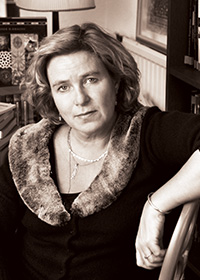 |
De Ridderstraat 6
2313 JR Leiden
The Netherlands
+31 (6) 4095 7322
s.c.j.devries@sampan.eu
